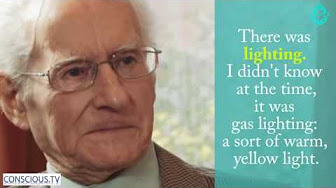There are many voices in the mental field. Some echo an inner calling, some could seem to be telepathic, and some repeat the mantra of suffering of humanity as a whole, as it evolves from generation to generation, and one is the voice of inner calling – often called the ‘still small voice’. How to discern between them?
As we become mindful of our thoughts and feelings, the quality, tone and nature of the mental chatter we uncover can be curious, amusing, and sometimes deeply rooted in ancient wounds. Here, we take a look at three qualities of the inner voice – qualities that bring into question the very notion of a separate, individual mind.
1. Very Old Programs
Some of the voices we hear in our heads are old programs, like repeating records, often acquired at a young age. These voices tend to be flat, hypnotic and repetitive.
One dirty, old record of mine is “Nobody likes you.” It’s a quite a classic. Unconditional to progress, elated states of being, success, achievement and periods of adoration, it goes on with its stubborn mantra.
These kind of destructive mantras are based on egoic defense and duality, and they often fan the fire behind the spiritual quest, the intellectual quest, the moral quest, and much of the activities of a life-time. Without any relation to intelligence or spiritual development, these broken records continue at a subliminal layer of mind, with banal repetition, even at times when being “liked” is utterly irrelevant. Their grip can’t be easily theorized away, as they are also often hereditary and alive in our cells.
One could wonder how many empires have been built, how many genocides conducted and how many wars fought and lost (and lost and lost), due to the repetition of similar unrealized root mantras of “normal” minds. Having identified such programs, if we continue to believe their subtle lunacy, we trot our way to familiar halls of hell. From the back-stage of conscious mind, these (seemingly) inane sentences are often actually directing our lives and energy force as humans.
For me, the tone of this voice is thin, bitter and slightly spiteful. It’s not my voice, and can be male or female. But it’s close to home, internalized at the root of mental form.
2. The Edited Conversation
Other voices we hear in our heads can be the supposed replay of conversations. Yet in this rattle, do we listen to the subtle, creative way we alter the tone, and employ censorship in order to satisfy our own personal agenda of separation?
These voices are the work of audio imagination, recomposing memory in subtle ways and with artful deletions in an attempt to regain inner peace through the a forcing of the feeling of being “OK”, right, or even marvellous.
These voices are also the kind of static in the mind that can be released through deeper attention or to listening more openly to the nature or atmosphere of the silence beyond them. If they are left to party, they will compose whole future scenarios as well as recomposing past ones. In all this, they are decomposing self esteem, vitality, and living connection to the truth of sensory perception. They distract and manipulate. They close down the senses, and as such, are hardly audible in quality or tone. Yet when heard, they do have a distinct atmosphere of distraction, denial and delusion.
Often, we can experience a variety of voices. There is the one that is adult within our minds, that judges, condemns and issues orders of censorship on the one that is childish. Many self judgements and repressions of authentic feeling arise from an attempt to identify exclusively with the adult one, and to keep the shameful one under wraps. Many choose to believe in the inner disciplinarian, that demands the kind of perfection from living form which is never going to happen.
3. The Still Small Voice
Then, beneath all this cacophony, there is the Still Small Voice. But it won’t necessarily speak, especially not if we don’t believe in it enough to listen. We need to invite it with questions and be prepared to listen either to the answer, or to the quality of the silence.
The more we open our ears to this Still Small Voice, and begin to trust it, the more we open the inner communication line to the undercurrent of our own minds. In this dimension, time and space are not absolute, meaning it is possible from here, to receive a far deeper guidance about what is needed in terms of direction, (without it needing to make ‘rational’ sense).
Acting on this voice has saved my life more than once. Today, I try to speak from there as much as possible; simply because it articulates a deeper truth and wisdom; one that no structure of ego or individual “personhood” could ever oversee.
The key, as always, is in the receptivity, in the listening – listening not only to the words, but the tones. Listening not only for the meaning but for the harmony. Listening not only for the attitude but for the purity of unconditional care in the inner articulation. Let this be our compass.
There is (funnily enough) a stillness in the Still Small Voice. A stillness that oversees cause and effect through an interconnectedness of being in a way that our small minds could never anticipate. It is not for by chance that the animals in Thailand moved to higher ground hours before the people on the day of the Tsunami. They had access to information that people have long been programmed to ignore.
Modern psychiatry tends to swiftly categorize individuals according to parameters that are hardly understood by science, let alone by its representatives. In no time, they are coercing a range of medications to numb the mind – drugs that have a variety of long-term damaging effects and that at best only repress symptoms rather than treating causal layers of discomfort.
Unfortunately, the very phenomena of thought, intuition, and the insanity of the hypnotic messages of judgement and condemnation shared with our environment are hardly understood, but perpetuated by many in the psychiatric profession. The judgment of the psychiatrist often resonates with the judgement of society towards mental “instability” and in turn affirms the lesser voices of mind – such as the one that reiterates again and the again that the individual has no worth, that there is separation, rejection and condemnation.
In this, many beautiful minds are deprived of their greatest strength, the clarity that can emerge through the development of an open receptivity in which there is an ability to truly listen to the guidance of the Still Small Voice, through which individual and collective wisdom can emerge. In the meantime, it can be surreal to watch people in their lives, locked into a half-listening to their own inner voices, as if they lived in a private bubble, disconnected from the living miracle of the world available beyond the mist of almost-thought.
Also on I AM HERE: The Still Small Voice is Speaking. Are we sane enough to listen?




